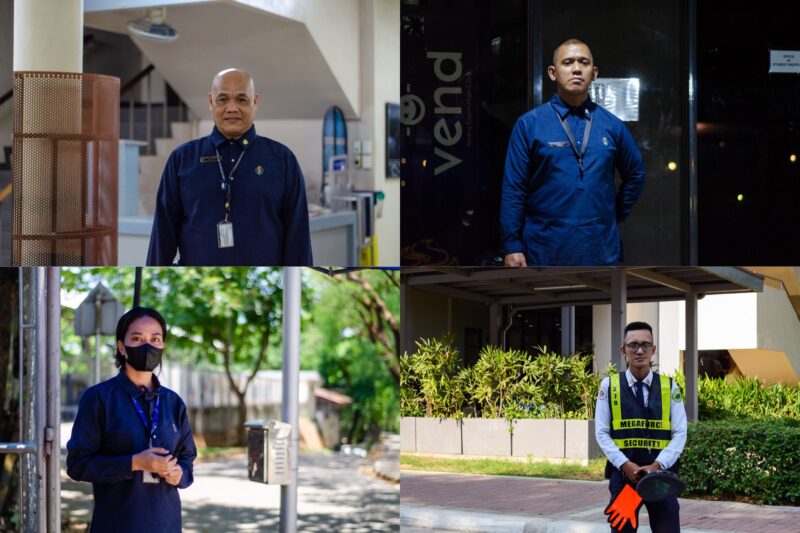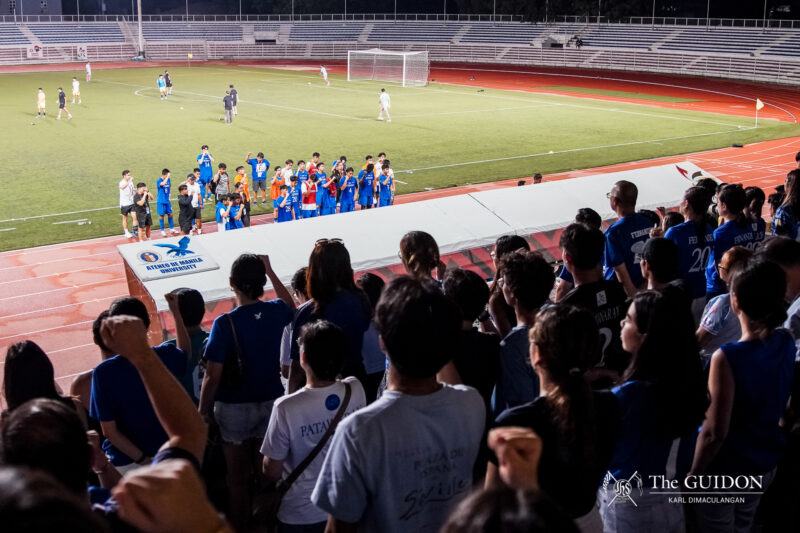Amid the battle against deception in truth-telling, the community of Laiban is left in the dark without access to information from the rest of the country.
SITUATED NINE rivers past the main highway, the people of Barangay Laiban in Tanay, Rizal have spent the last five decades off the power grid. While 95.63% of the Philippine population has access to electricity, the residents of Laiban are left behind as the minority—disconnected from a stable electrical grid with unstable mobile coverage.
In an age where electricity is a basic need, this deprivation keeps Laiban in the dark, magnifying their lack of access to reliable media channels as the 2022 national elections draw near.
Life unplugged
The residents of Laiban have been dependent on a single diesel generator for the longest time. However, they struggle with maximizing the generator for electricity due to the heavy costs of its operation and maintenance.
Ernie*, who has been working in Laiban for almost two years, also notes that the machine is prone to damages especially when used constantly. The community thus decided to use the generator only from 6:00 to 9:00 PM. For cheaper alternatives, households usually depend on gasoline lamps to softly illuminate the dark night.
From the eyes of policymakers, barangays such as Laiban have not necessarily been ignored. Policies such as the National Electrification Administration Reform Act of 2013 mandate the provision of sustainable electricity in rural areas. However, the community of Laiban has yet to feel the effects of this law. Ernie laments that it might be logistically impossible for electric power distribution companies such as Meralco to connect them to the power grid.
Likewise, their local government unit (LGU) lacks the budget to readily respond to their needs. “Malaking pera po talaga magagastos kaya hindi po kaya ng LGU. ‘Yung kalsada nga po ‘di pa nila mapagawa, e kuryente [pa] po (The LGU can’t handle it because they’ll need to spend so much money. They can’t even have the broken road fixed yet, what more provide electricity),” Ernie elucidates.
In hopes of alleviating the concerns of the community, various organizations have provided solar panels for 150 households over the pandemic. Ernie adds that these panels are able to supply electricity that powers lights and enables cell phone charging. The larger installations are also sufficient for refrigerators and televisions.
Despite the efforts of these non-profit organizations to supply renewable and sustainable energy in the community, mobile coverage and broadcast signals remain erratic. Ernie and other residents of Laiban have to travel to a riverside spot they call “signalan” to send a text or use mobile data. Although the area is only a brief walk away, the residents become easily vulnerable to the risks brought by weather conditions such as extremely hot days or harsh rain showers.
These concerns spell a greater disparity between the community and more considerably developed areas that may pose deeper implications. “Nakakaapekto rin ‘yung kawalan ng signal sa pag-access ng impormasyon sa Internet (The lack of signal affects our access to information on the Internet too),” Ernie laments.
In the dark
With insufficient reception for TV, radio, and mobile coverage, constituents like Ernie are largely isolated from access to reliable information. “[Kahit diyaryo,] hindi po uso dito. Mahirap po talaga ang pagkuha ng impormasyon (Even newspapers are not distributed here. Accessing information really is difficult),” Ernie says.
The information gap that afflicts the community poses a risk to further disinformation, as town gossip and hearsay become the primary source for news and election updates. These stories—susceptible to distortion—are what reaches the rest of the community, and they have no way of verifying or exploring the facts further.
Aside from the stories they hear when they travel outside Laiban, the community also gains updates through the occasional local and provincial candidates that campaign in their area. On these rare instances, the candidates’ promises of providing solar power and flashlights shine a thin sliver of hope for Laiban. However, the community’s enduring concern on signal and mobile coverage have yet to be addressed as political candidates rarely return after a single visit.
The scarcity of information poses worries for the community’s youth voters, of which numerous will participate in their first elections. “Sa tingin ko nga hindi po sapat ‘yung impormasyong nakukuha nila para makapagdesisyon sa pagboto (I think the information that the youth gets is not enough for them to decide on who to vote for),” Ernie says.
Despite the hurdles they have encountered, Ernie and the community continue to prepare for the coming elections. Their two precincts will utilize classrooms in their elementary school, and the LGU is set to supply a generator to power the voting machines.
Empowered
Moving forward, Ernie maintains his high hopes for the leaders of tomorrow. In evaluating candidates, he and his colleagues believe in competence and ability backed by action. “Basehan po namin ay ‘yung may kakayanang mamuno sa ating bansa. ‘Yung pagkakaroon ng malawak na karanasan bilang isang leader, isang kongkretong pagpapakita ng kakayanan nila,” Ernie declares.
(Our basis is someone who is skilled in leading our country. One concrete manifestation of their skill can be seen in having an extensive leadership experience
On behalf of the community, Ernie also wishes that the elected leaders heed their concerns and address the advocacies that the people of Laiban fight for. “Nakikiisa ako sa mga nagra-rally na teachers at nagsasabi ng mga kahilingan nila dahil ‘yun din po kahilingan namin. Sa komunidad naman namin, sana mas mapakinggan ‘yung mga kailangan namin (I am one with the teachers who rally for the changes they want because those are also our wishes. We also hope that our needs as a community become more heard),” he states.
Largely isolated from the digital spheres of social media and information, the experiences of individuals in communities such as Laiban emphasize the need to amplify the voices of sidelined groups and far-flung areas. The urgency of proper development and equitable change persist, especially during a period where access to reliable and accurate information can make or break the nation.
*Editor’s note: The name of the interviewee has been changed at his request in order to protect his identity and privacy.







